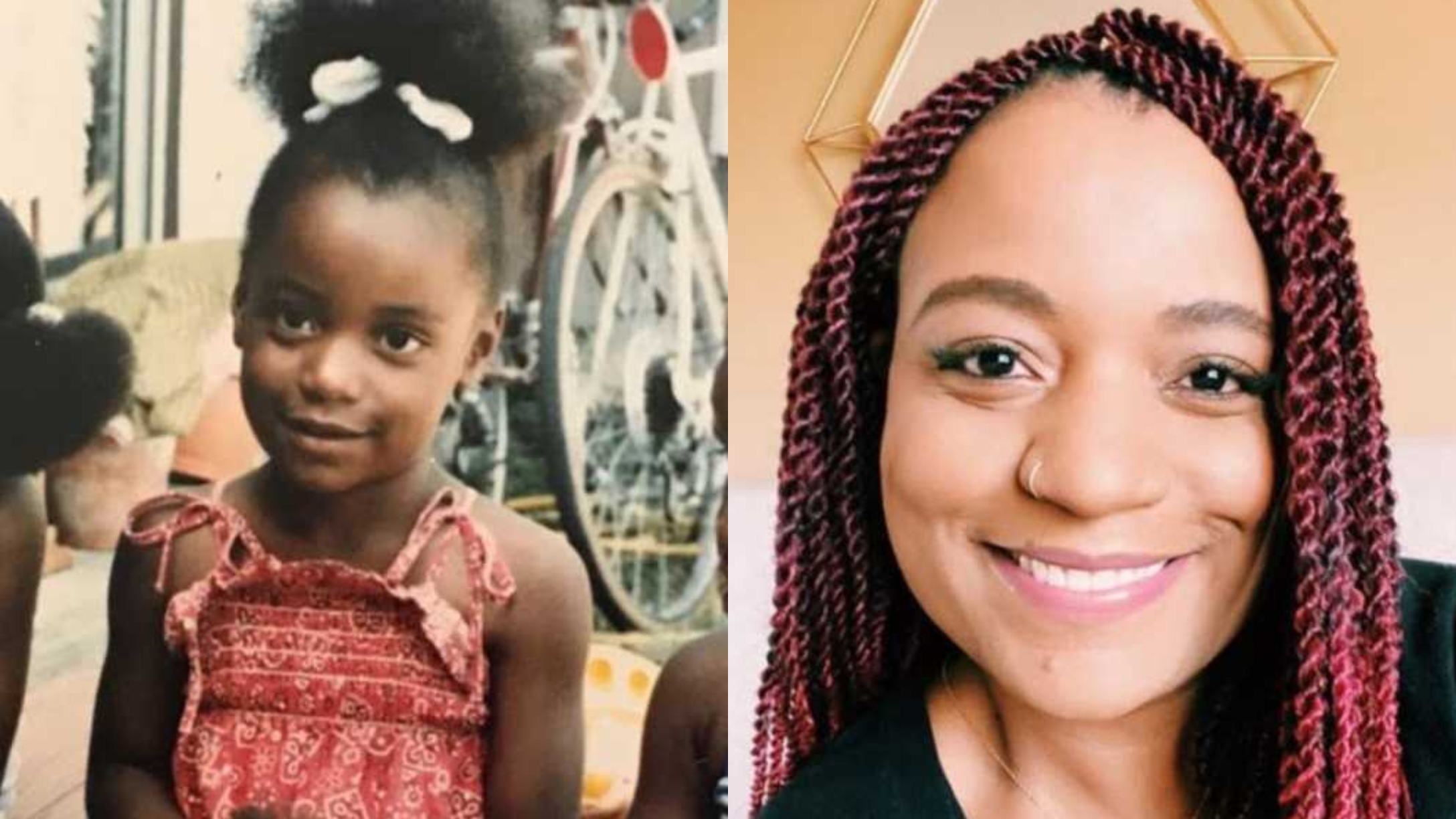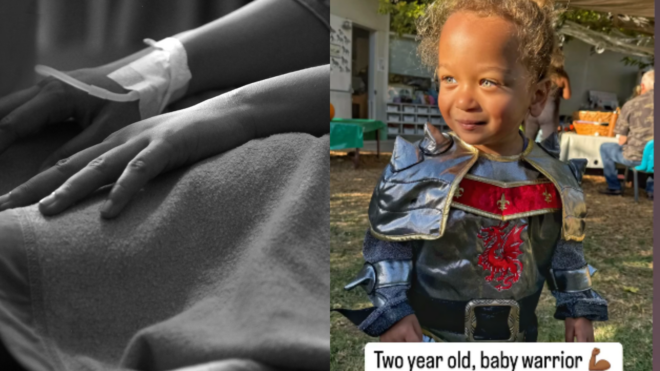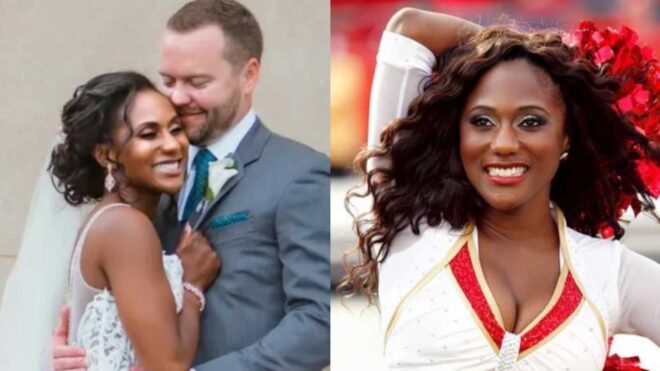
I hit my rock bottom back in May 2020. It was excruciating. It broke me open in ways that I had never experienced before. Long-standing relationship issues, racial injustices, social injustices, long-standing personal battles with myself … it all collided that summer.
That’s when I decided to walk my way to healing, to connect to myself, wanting to be better. I didn’t know how to start or what I “should” be doing but I just knew to look forward. And heal. Finally.
More from CafeMom: The ‘Strong Black Mother’ Trope Is One I Have Zero Desire To Keep Perpetuating
I needed support on this journey and reached out to a therapist to help me untangle this dark knot of pain, regret, anxiety, and just plain exhaustion.
As I started therapy that following July, my therapist and I began to dig into the roots of my childhood, my family of origin, and generational trauma. I had not really heard of generational trauma but was intrigued as she began to explain to me what it meant and what her and I were working with and how we would proceed with my healing goals.
By definition, generational (also called intergenerational trauma or transgenerational trauma) trauma is exactly what it sounds like: Trauma that isn’t experienced by just one person but gets passed down from one generation to the next to the next and so on.
Some examples of generational trauma can include racism — which is very prevalent in the Black community — poverty, financial hardship, physical, sexual, or emotional abuse, neglect and abandonment. Some generational trauma can be so hard to see if it isn’t the “Big T” trauma that we are conditioned to look for. It can show up as repeating patterns that look like failed relationships, chronic divorce and can become ingrained traits and manifest as anxiety, stress, and depression. Generational trauma can mask itself through learned beliefs, behaviors, and patterns that eventually become a part of our makeup.
When we started talking about my family of origin, I began thinking about what was passed on to me from my own parents, grandparents, and great grandparents, and what was passed on to them in their lives as well. I began looking at my childhood and what was modeled to me, what I heard, what I saw. Some of it was good. And honestly, a lot of it was pretty painful. But I dug in.
I began to wonder, naturally, what I was passing on to my own children.
I have a daughter and a son, both of whom are teenagers now. My kids did not grow up in the same way that I was raised, but I’m positive wounds have been made to them by my husband and I. I know this. And I questioned whether me wanting to heal myself came too late for them. The answer is no. Healing is always available.
Breaking any kind of generational trauma can be done but it’s a very deliberate choice. It takes a ton of awareness and effort. Healing is a beautiful thing and can make a huge impact on your life and the lives of the ones you are in contact with. So, I decided that I had work to do. For my family. For me. I had to understand what I was working with. What I was given. What I was carrying. What I was ready to face.
As I began the inner work to heal, I told my therapist that I wanted to end the effects of the traumas that had been circulating within me, of abandonment and neglect.
I had my basic needs met growing up, but that doesn’t mean that my emotional needs were met. The trauma of not being heard, of being invalidated when I tried to be vulnerable, was huge for me. The trauma of not being able to share my feelings or thoughts without being dismissed.
The trauma of sexual assault.
The trauma that caused bad dreams that had me yelling in my sleep and waking my husband in the middle of the night. It all caused me to lead with fear, live with anxiety, hide behind a mask and perform. The trauma that caused me to play so small, severely doubt myself, consider suicide, settle for less than I deserved, hurt myself, hurt others, and not live the purpose that I wanted to live. That I felt I could live.
Racial discrimination, broken-up families, violence, abandonment, and neglect are common traumas in my family line.
My parents each have experienced trauma in their own lives. But you didn’t talk about it. You just accepted it and moved it along. Naming the trauma was not an option. Because you had a family to raise and work to do and bills to pay and God would take care of everything. Just pray the pain away.
You learned to put a bandage over the fractures, but that doesn’t last long. That trauma always comes out sideways; it will always rear its ugly head no matter how hard you try to bury it.
I saw those fractures and felt the residue of my family’s past traumas growing up. They showed up in various ways.
The demand to “be in line” because appearances mattered. The strict rules. The being called names. The very explosive and reactive communication style — the screaming, the yelling. The violence. The hitting. I remember feeling so alone. Like an outsider. Like I had to walk on eggshells to keep the peace. I learned how to perform so that I wouldn’t be tossed aside. So that I wouldn’t be left behind. So that I wouldn’t get into trouble.
This way of conditioning and coping has shown up a lot in my relationships, both personal and in friendships. It’s a wound that has been there for such a long time. All of these added up to a sadness that I felt but tried desperately to cover up. To ignore. To put a band-aid on.
No more. May 2020 was my turning point.
Big trauma, little trauma … it all matters. As my therapist and I dug into this work, I began to become aware of how much trauma I had actually been through and how I was living with it all, in my bones. It seeped into every part of my life. I definitely knew that I didn’t want to pass my own trauma, negative conditionings, and patterns down to my own children. Considering that they were 17 and 13 when I learned about this subject, I know some damage has been done. But when you know better, you do better, right?
I promised myself in August 2020, three months after hitting rock bottom, to break generational trauma and curses in my family. If I could heal, really heal, I could help others heal as well. If I could grow, unlearn, relearn, take accountability, be vulnerable, and make different choices, all of that affects those around me, leading them to possibly heal as well, in whatever way works for them. If I could take the band aid off and look at the wound for what it was, I could begin to deal with it. And I would pass that healing onto family, friends, my neighbors, my community. I was once told that “when you heal, you heal others and you heal the world.”
I believe that.
I have had a rocky relationship with my parents for the last few years.
There has been a lot of hurt, misunderstandings, lack of communications, and lack of taking responsibility. At one point I had to estrange myself from them because there was just no way we could, or at least I thought, have a relationship. But something changed for me in this year of healing and growth. We have a lot of growing to do, but I love my mom and dad and will extend grace to all of us as we walk toward healing and understanding.
I can’t go back and undo the traumas, the negative conditionings, and patterns that happened long ago to those that came before me, but I can start with me. I can begin to shift things in my short time here on Earth.
We are all human. We've all hurt in some way, but the truth is we have also all hurt others at some juncture. The point isn't to be perfect.
The reality is, we all have a choice in what to do with all of that pain.
I chose (and choose) to heal.
Trauma runs in families. But so does love and healing. It’s nonnegotiable for me to speak and act out love, truth, forgiveness, peace, vulnerability, healing, and growth to those that come after me. That is what I want to pass down.
This will be my legacy. Trauma does not define me and does not get to stay in my family line. I won’t let it.
It ends here. It ends with me. And guess what? It can end with you, too.







